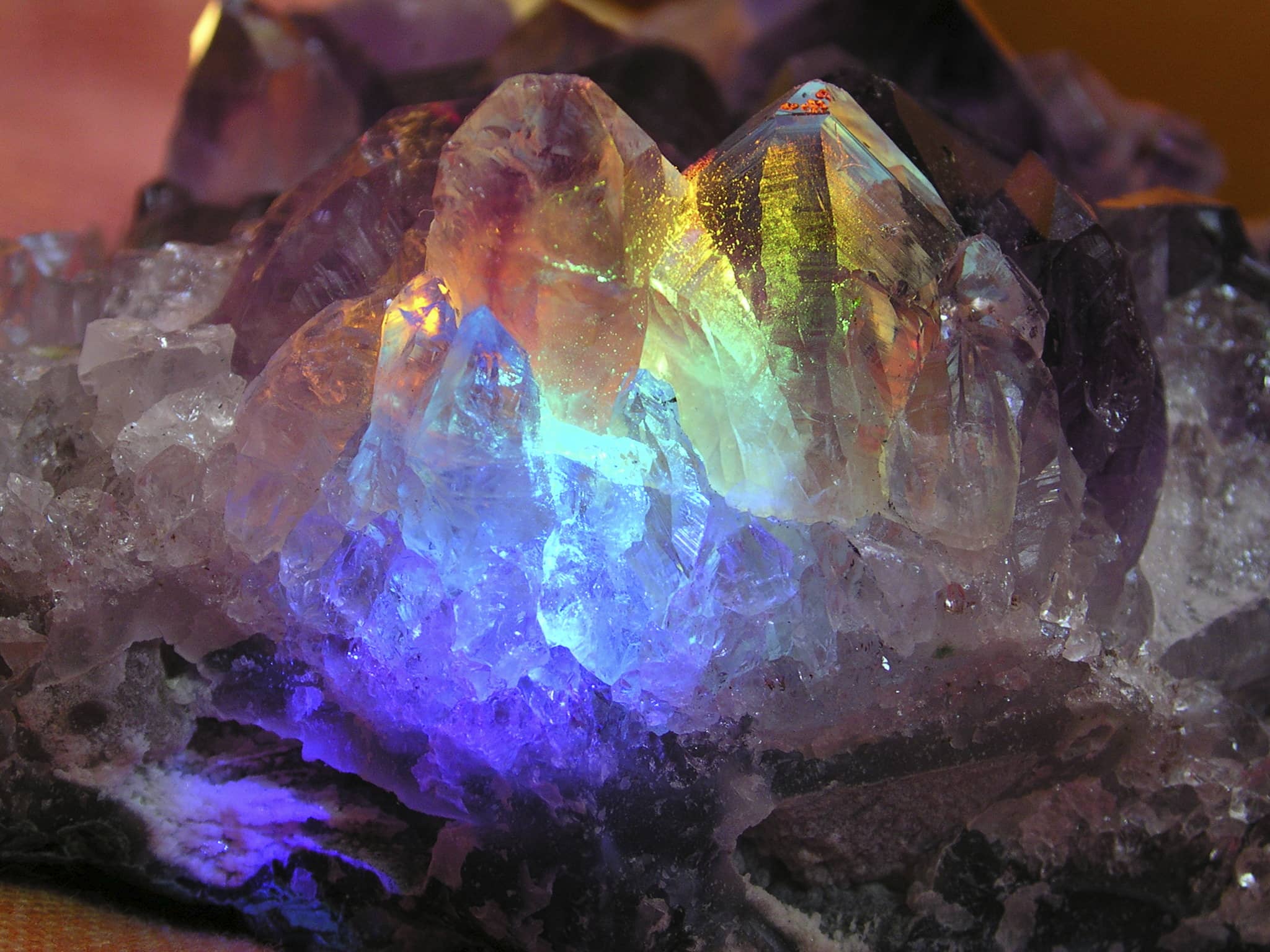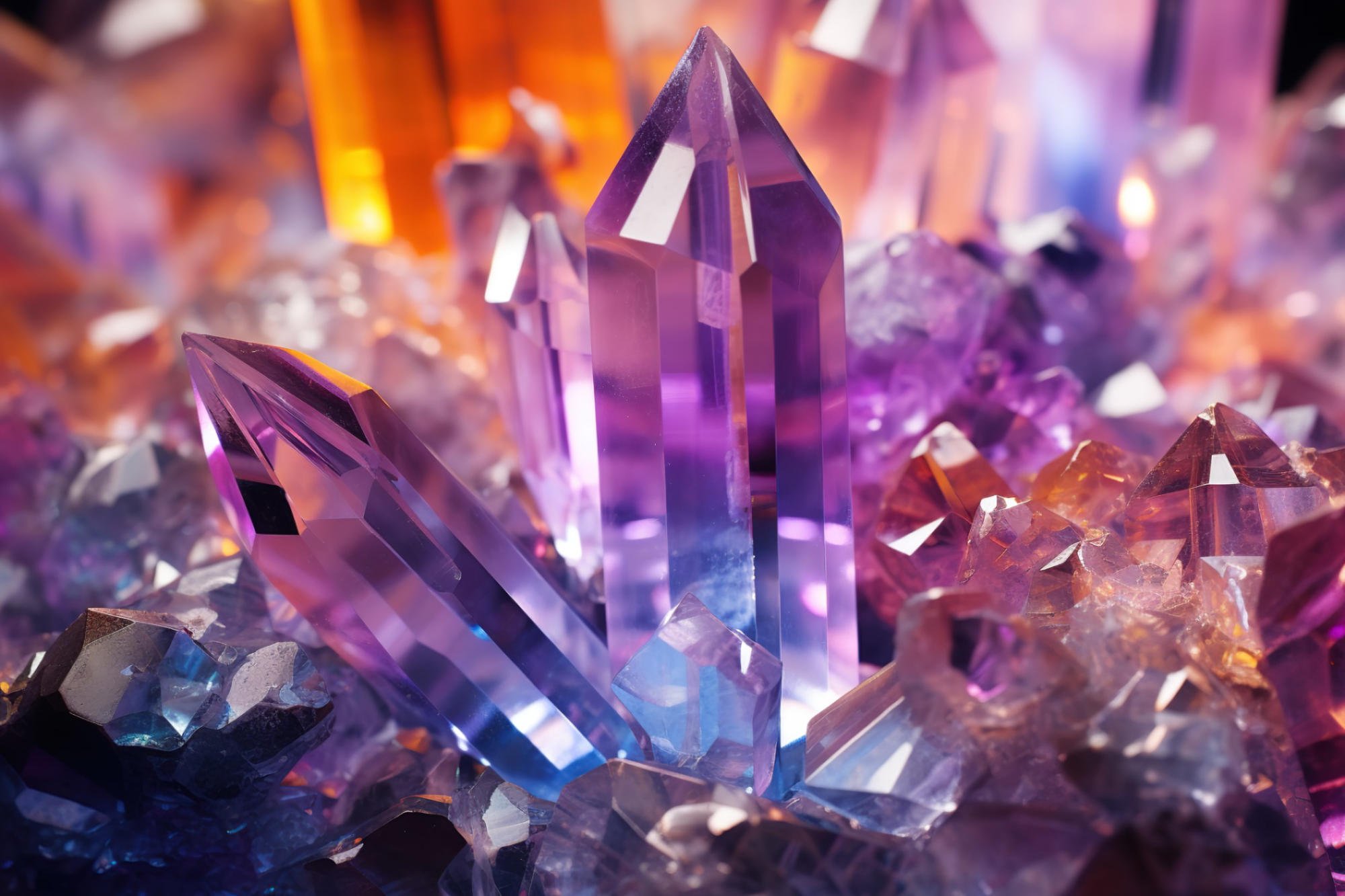Crystal Lust Died: Exploring The Shifting Meanings And Perceptions Of A Name
It's interesting how words and names, too, can carry a lot of baggage, sometimes even shedding old meanings or associations over time. When we hear a phrase like "crystal lust died," it might make us pause, perhaps prompting thoughts about something losing its shine or an old idea finally fading away. This isn't about a person, but rather, it's about how certain perceptions linked to the word 'crystal' have, in a way, reached their end, making room for a fresh look at what 'crystal' truly represents in our language and our world.
Words, you know, are very much alive. They change, they grow, and sometimes, they even lose parts of their former selves. The term 'crystal,' for instance, has a fascinating journey through different contexts, from the hard sciences to personal names, and even into the realm of software. It's a word that has, quite frankly, been through a lot, accumulating layers of meaning, some beautiful and clear, others a bit clouded by past associations.
So, when we talk about "crystal lust died," we're really looking at a shift in how 'crystal' is understood. It's about moving beyond certain narrow, perhaps less flattering, interpretations and embracing the broader, more diverse applications of this versatile word. It's almost like a rebranding, but one that happens organically, over time, as people's collective understanding evolves, making space for new ideas and shedding old ones.
- Real Madrid Away Kit
- Different Types Of Hair Gel
- Sophia Rosin
- When Does Oliver Die
- Man With Most Children
Table of Contents
- Understanding "Crystal Lust Died" as a Concept
- The Broader World of "Crystal"
- What Does the Future Hold for "Crystal's" Image?
- Frequently Asked Questions About the Evolution of "Crystal"
Understanding "Crystal Lust Died" as a Concept
The phrase "crystal lust died" might initially bring up images of something specific, perhaps even a person. However, within the context of how language and perceptions change, it's more helpful to think of it as a symbolic phrase. It represents the fading or demise of certain, shall we say, less desirable or overly simplistic associations with the word 'crystal.' You know, like how an old trend just kind of loses its appeal over time. It's not about a literal death, but rather a transformation in how a word is viewed and used by people.
The Shifting Sands of Meaning for "Crystal"
Words, in a way, are like living things; their meanings can truly shift and evolve with culture and time. Take 'crystal,' for instance. It's a word that can be a countable noun, referring to a specific "crystal ornament," or an uncountable one, meaning the raw "crystal" material itself. This flexibility already shows how adaptable the word is, but its meaning goes much deeper than just grammar. For example, in physics, you have concepts like the Wigner Crystal, which is fascinating because it actually breaks translational symmetry, unlike a Mott insulator that maintains it. This just goes to show you, the word 'crystal' is used in very precise, technical ways, far removed from any sort of 'lustful' connotation.
Then there's the Crystal programming language, which, quite honestly, is a whole different beast. It takes a lot from Ruby's syntax, yet it drops dynamic typing for type inference, making it compile into really efficient machine code. This is a very practical, high-performance application of the word 'crystal,' showing its connection to innovation and technical progress. It's almost like, the more we learn about the various uses of 'crystal,' the more we see how broad its meaning truly is, and how far it stretches beyond any single, narrow interpretation.
- Are Dreka And Kevin Still Together
- Mary Matalin Images
- Is Bull Sperm In Red Bull
- Peyton Manning Home In Denver
- Tieghan Gerard Anorexia
From Purity to Stereotype: A Name's Journey
It's fascinating, isn't it, how a name can gather different meanings and associations over time? The name 'Crystal,' for instance, is quite often chosen for its clear, bright, and pure sound. Someone might even have it as their English name, given by a kind teacher, reflecting a gentle nature. However, it's true that the name 'Crystal' has, in some circles, unfortunately picked up some rather unhelpful stereotypes. It's almost as if, through popular culture or certain portrayals, it became linked with a less desirable image, sometimes even associated with professions that carry a certain stigma, like courtesans or strippers. This connection, in some cultures, can unfortunately place it on a level with names that have historically been tied to less respectable backgrounds.
This is where the idea of "crystal lust died" really comes into play. It's the hope, perhaps, that these negative, "lustful" stereotypes are fading away, giving the name 'Crystal' a chance to reclaim its original sense of clarity and beauty. People are increasingly recognizing that a name is just a name, and its true meaning comes from the person who bears it, not from any passing, unfortunate association. It's a journey, really, for the name to shed those unwanted layers and shine brightly once more, you know? It's about moving past those old, tired ideas and seeing the name for what it is, rather than what some fleeting stereotype might suggest.
The Broader World of "Crystal"
Beyond personal names and their shifting perceptions, the word 'crystal' itself has a truly vast and varied presence across many fields. It's not just a pretty word; it's a fundamental concept in science, a powerful tool in technology, and even a subject of grammatical study. This broad application really helps to dilute any singular, perhaps negative, association, showing that the "lust" aspect is just a tiny facet, if even that, of what 'crystal' means. It's almost like, the more you explore the word, the more its true depth becomes apparent, overshadowing any fleeting, narrow interpretations.
Crystal in Science and Technology
When you think about 'crystal' in science, a whole different world opens up, really. For example, in physics, there's a deep discussion about how to describe substances like glass and crystal. They have fundamental differences, both microscopically and macroscopically. Scientists often look at papers discussing the properties of glass, trying to understand what makes it distinct from a true crystal. This kind of detailed, scientific inquiry is a very serious and important use of the word, completely separate from any sort of "lustful" meaning.
Then, in the world of software, you have things like Oracle Crystal Ball. This is a very powerful risk management tool, you know, built right into Excel. It's used for all sorts of predictive modeling, forecasting, and data simulation, helping people get a really deep understanding of potential impacts. It's a tool for foresight and planning, which is a very practical and analytical application of 'crystal.' And let's not forget CrystalDiskInfo, which is a program that does a fantastic job at checking hard drive data. It's a utility that helps ensure your computer hardware is in good shape, which is, again, a very functional and technical use of the word 'crystal,' far removed from any sort of negative connotation.
The Language of Crystal
The Crystal programming language, too, is quite a fascinating subject on its own. It's a static compiled language, built on LLVM, and it boasts some really neat features like type inference. This means it can figure out data types on its own, which makes coding a bit smoother. It also has robust concurrency models and can easily link up with C language code, which is pretty handy for developers. However, it's worth noting that Crystal's Fibers, which are its way of handling concurrent tasks, can't be spread across multiple underlying threads in the same way Goroutines can in Go. This is, arguably, a significant limitation, almost like a program being stuck with just one core, which can be a very fatal flaw for certain applications.
This discussion about the language's features and its "fatal flaw" just goes to show how the word 'crystal' is used in very specific, technical contexts, where its meaning is about performance, architecture, and capabilities, not about any kind of human emotion or stereotype. It highlights the diversity of the word's application, reinforcing the idea that the "lust" aspect is a very small, perhaps even dying, part of its overall identity. You know, it's just another example of how rich and varied the word 'crystal' truly is, far beyond any narrow interpretation.
What Does the Future Hold for "Crystal's" Image?
It seems pretty clear that the word 'crystal' is constantly evolving, shedding old skins and taking on new meanings. The idea that "crystal lust died" is, in a way, a hopeful sign. It suggests a movement towards a more nuanced and accurate understanding of the word, free from outdated or unhelpful stereotypes. As we continue to use 'crystal' in new technologies, scientific discoveries, and even as a beautiful name, its positive and diverse connotations will likely grow even stronger. It's a pretty good bet that the clarity and strength inherent in the very idea of a crystal will ultimately shine through, leaving behind any lingering shadows of past misinterpretations. It's almost like the word itself is cleaning house, getting ready for a brighter future.
This ongoing evolution is a good reminder that language is a living thing, always adapting to how people use it and what they need it to express. The more we learn about the true breadth of 'crystal'—from its precise scientific definitions to its role in cutting-edge programming—the less any single, narrow, or negative association can hold sway. It's a testament, really, to the word's inherent versatility and its capacity to mean so many different things to so many different people. You can learn more about language evolution on our site, and link to this page a reputable etymology site.
Frequently Asked Questions About the Evolution of "Crystal"
People often wonder about how words change, and 'crystal' is a good example of this. Here are some common questions that come up when we think about how its image has shifted over time.
What caused the 'death' of the 'crystal lust' stereotype?
The fading of the 'crystal lust' stereotype is likely due to a few things, actually. As society evolves, so do its views on names and their associations. Increased awareness of how stereotypes can be harmful, plus the growing use of 'crystal' in neutral or positive contexts like science and technology, has probably helped to overshadow those older, less flattering connections. It's almost like, the more people see 'crystal' in a positive light, the less power those old stereotypes have, you know?
How has the name 'Crystal' reclaimed its image?
The name 'Crystal' is, in a way, reclaiming its image simply by being used by individuals who embody its positive qualities. As more people named Crystal achieve success and contribute positively to society, their personal identities naturally override any outdated stereotypes. Also, the widespread understanding of 'crystal' in its scientific and technical meanings helps to balance out any negative cultural baggage. It's a slow process, but it's definitely happening, and it's pretty clear to see.
Are there still negative connotations associated with 'Crystal' today?
While the more "lustful" connotations are certainly diminishing, some lingering stereotypes might still exist in certain cultural pockets. However, these are increasingly being challenged and replaced by a broader appreciation for the word's diverse and often beautiful meanings. It's a bit like an old, faded photograph; while you can still see the image, it's not as sharp or impactful as it once was, and new, clearer pictures are being taken all the time, basically.
- First Date Outfit Dinner
- Haschak Sisters Oldest To Youngest
- Hope Mikaelson Real Name
- Ruby Lend
- How Much Did Blippi Sell For

7 Crystals You Need to Bring Love Into Your Love Life By Samantha Fey
/fluorite-mineral-652050409-585166cb3df78c491e1241b3.jpg)
Crystal Definition, Examples, and Common Types

Challenging Conventional Wisdom: New Discovery Transforms Our